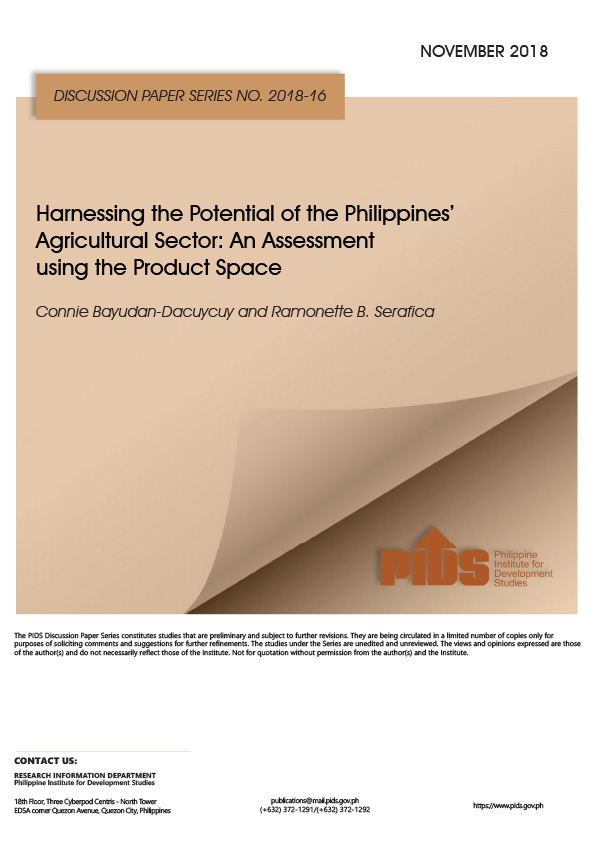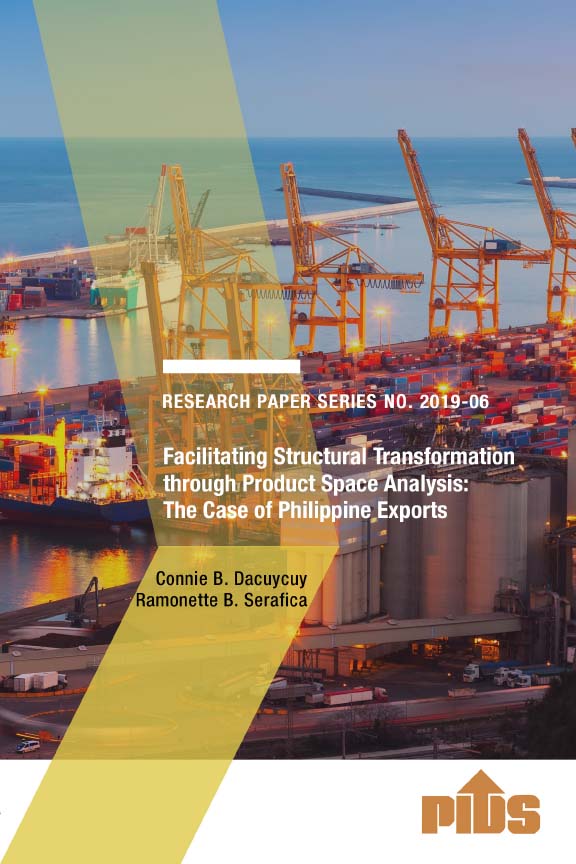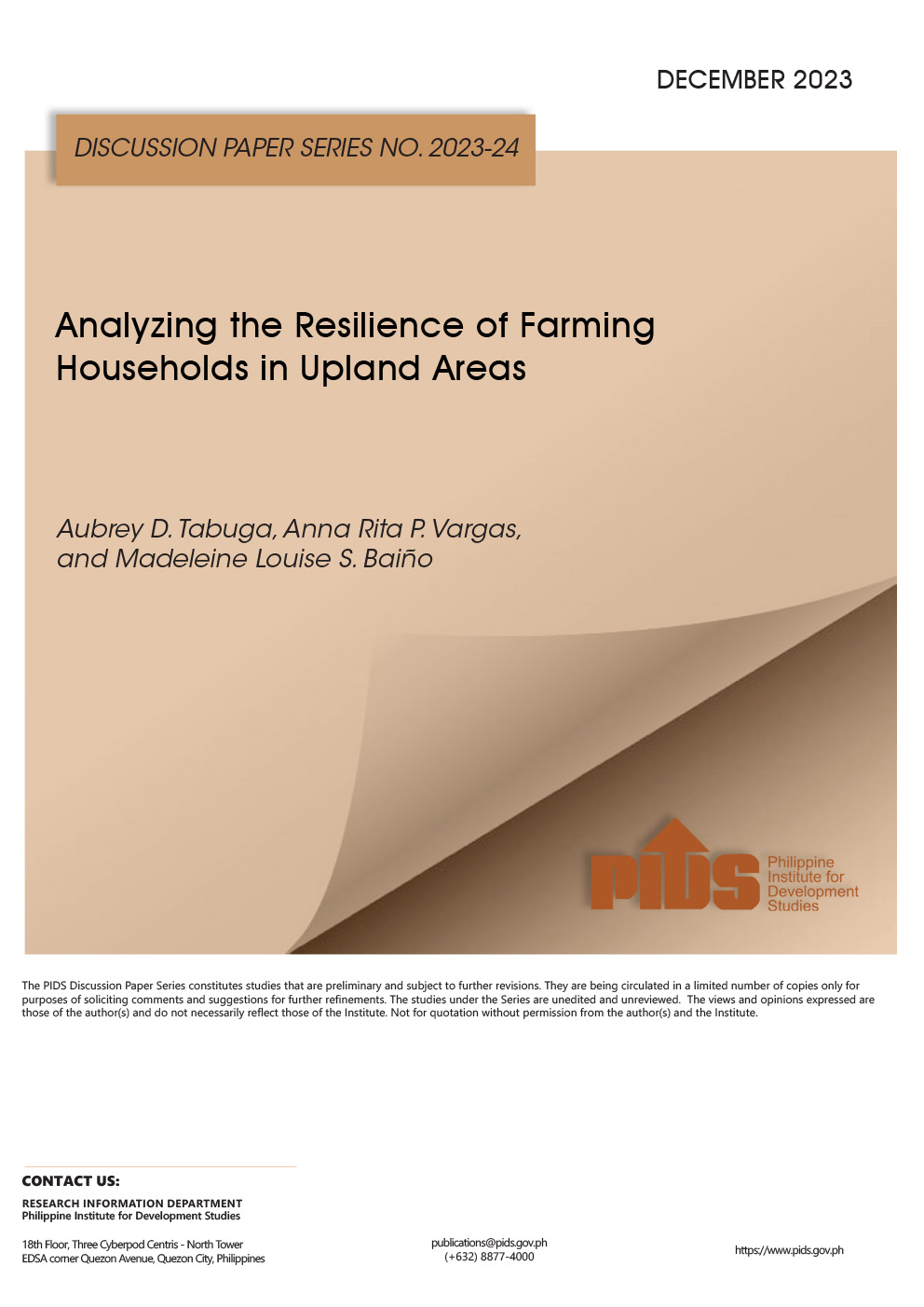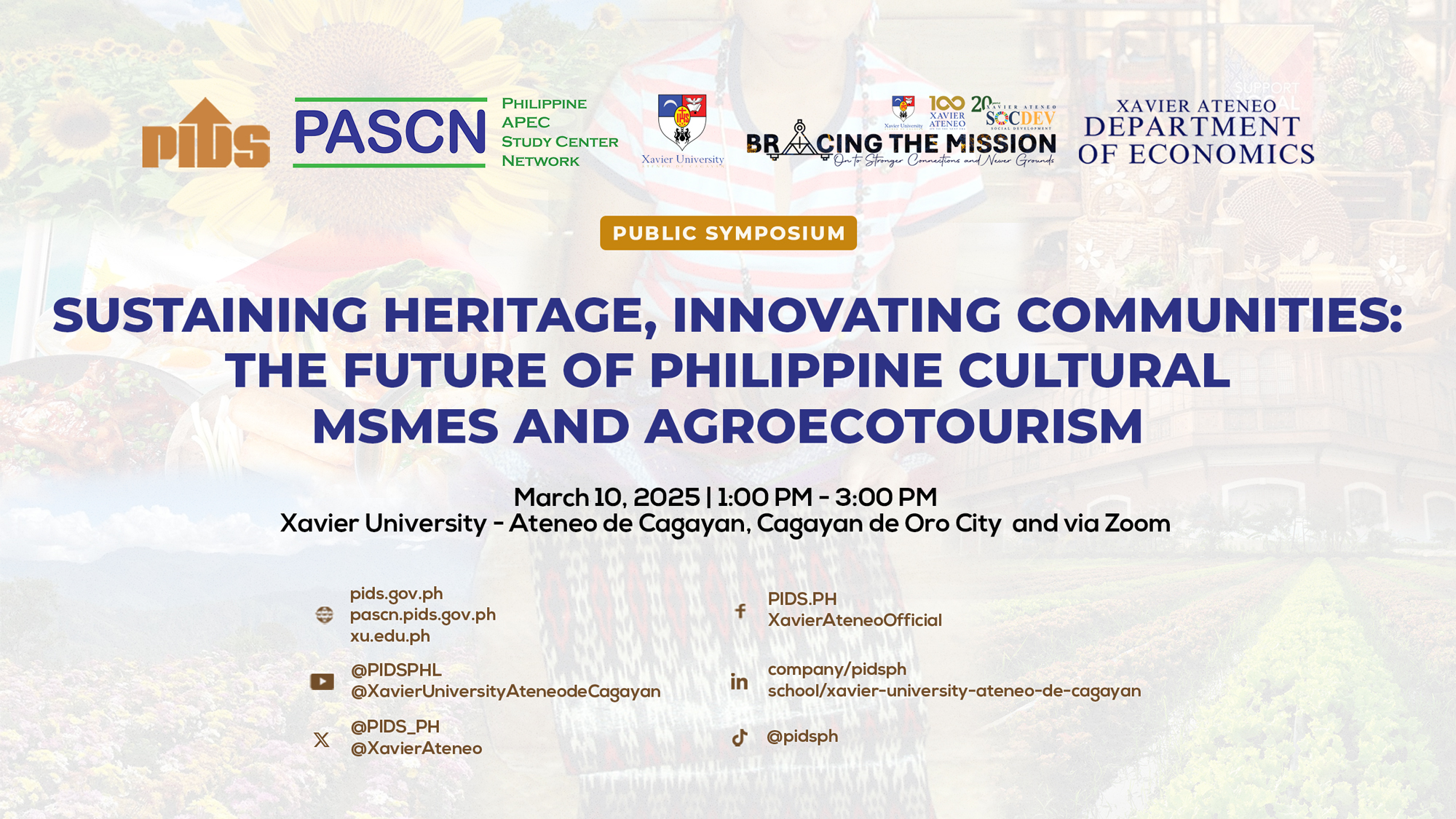Based on output shares, the Philippine economy has undergone significant structural transformation, with the contribution of agriculture to GDP now only 11 per cent. However, based on employment shares, structural transformation is far from complete, as one-third of employed workers still operate in the agricultural sector. Within agriculture, there has been limited crop diversification. The major crops from the 1970s remain the same major crops today, namely rice, maize, coconut, banana and sugarcane. The confluence of stagnant productivity and stable crop composition is no coincidence. Traditional crops exhibit lower profitability, and structural transformation within agriculture would generate high pay-offs in productivity growth. Such transformation is strongly associated with the formation of diverse and thriving value chains for marketing and processing farm output. The lack of transformation is partly the result of government failure. Rather than allowing the economy to reap the gains of lower comparative costs elsewhere, the government has imposed tariff and non-tariff barriers to protect domestic farmers. The government has also intervened in the economy with its expenditure program, which is heavily skewed towards production support for rice, mainly in the form of irrigation investment and rehabilitation. But the reality of government failure does not mean that ‘getting prices right’ is sufficient to address stagnant agricultural productivity. Agricultural transformation usually does not occur by mere operation of commercial forces, which are themselves prone to market failure. At the very least, government intervention of some sort will be required to provide the public goods needed for agricultural transformation. Among the most pressing public goods are innovation and dissemination of new technologies, including in traditional crops, especially rice. Other public goods include gravity irrigation and rural roads; yet due diligence must be exercised to ensure only efficient projects are identified and implemented.












